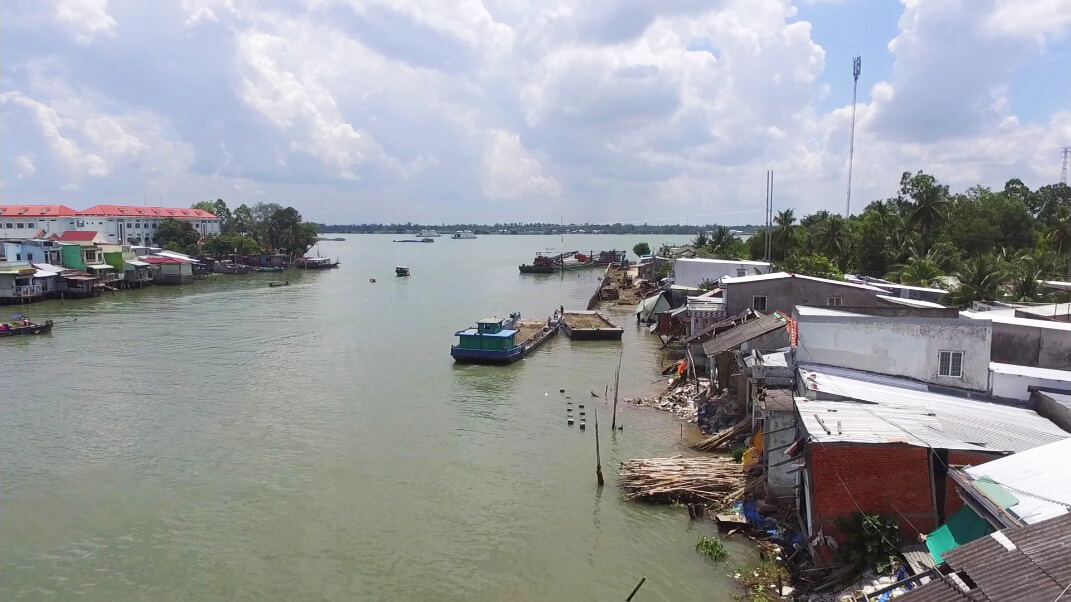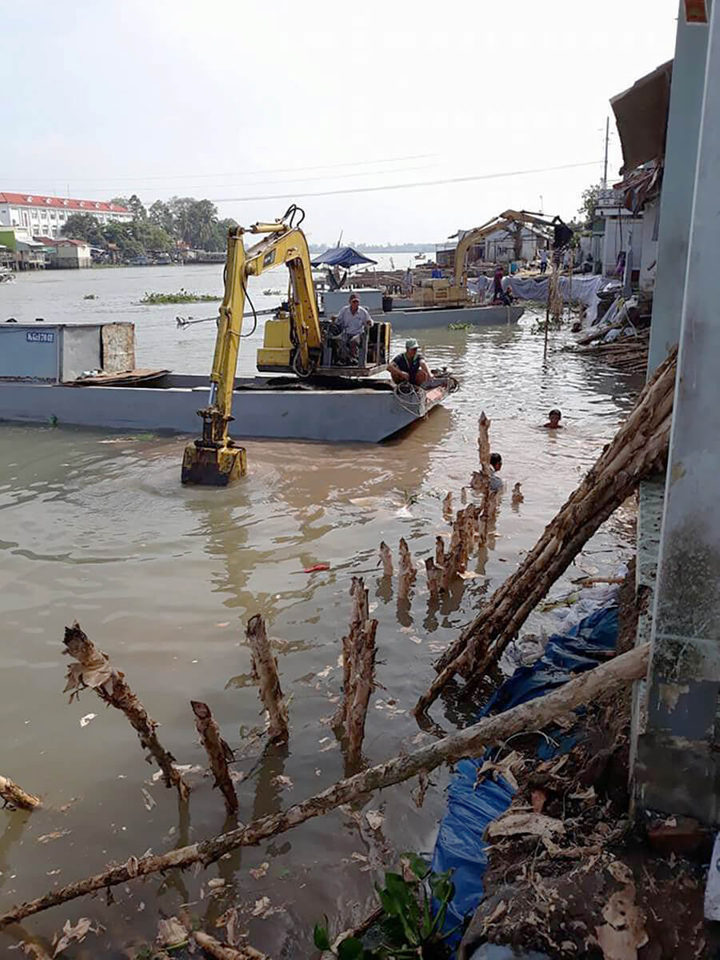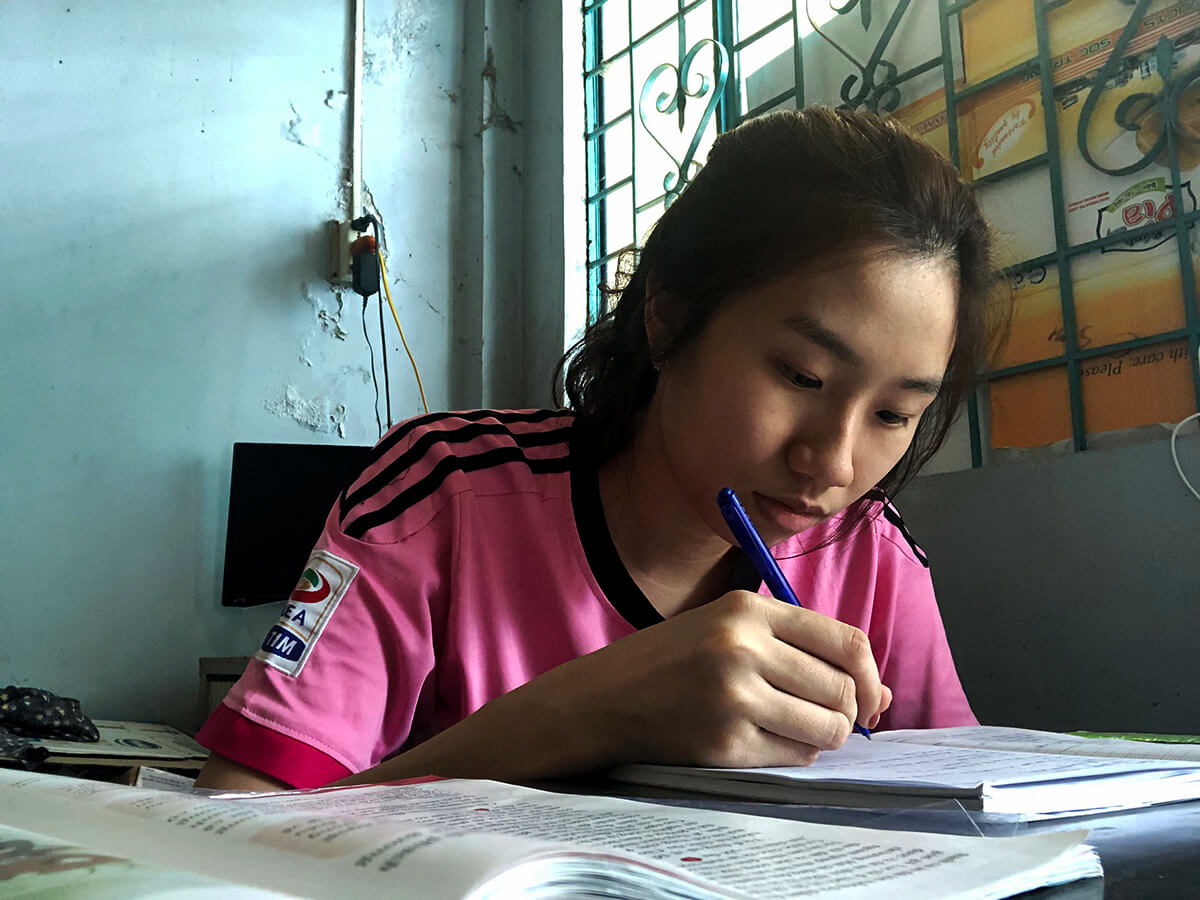Riverbank erosion causes severe damage to the affected communities in Vietnam's Mekong Delta. Vuong Kha Tu shares an account of a landslide in one of the most challenging river deltas around the world and its impact on people, specifically of a family that had to relocate.
Mekong Delta is known for its dense system of natural rivers. Large groups of people make a living by trading along the riverbank. However, the riverbank erosion and a subsequent landslide that happened recently makes them deal with a lot of difficulties. In fact, there is a variety of reasons for riverbank erosion and landslides, including natural and human actions.
Currently, the Mekong Delta is facing many problems and challenges arising from some factors related to climate change. In the last 10 years, there has been an increased number of landslides. The reasons include construction of new infrastructure and houses near riverbanks, uncontrolled sand mining, and shortage of sediment due to a series of hydropower dams built on the upper Mekong River.

A landslide and its consequences
O Mon is an urban district in the Mekong Delta region of Vietnam, and is about 25 kilometers from the hub of Can Tho city center. A specific example of the problems in the delta could be the severe landslide in Thoi An ward of O Mon district in 2018, that swept a row of houses into the river.

The local community suffered a lot when they lost their house and valuable assets.
When the riverbank erosion started, and when it was minimal, the local people tried to prevent further erosion by driving melaleuca tree poles and by throwing sandbags into the river.
After the landside in 2018, the government started building an embankment along the river to mitigate the problem. But the construction has not been completed yet.
The government compensated people who had to relocate after the landslide. Since they lost their houses and all their valuable assets, the compensation was just enough for the relocation but not enough for building new houses.
Roads and pipelines where the landslide occurred, were heavily damaged. The group of people making a living by selling wares on the riverside became unemployed and faced financial hardships.
Living through a landslide
Although the landslide did not swallow their house, Tang My Quyen's house developed severe cracks on the walls and floors, besides other structural damages. As the family feared that their house might be swept by the river any moment, they moved to ensure their own safety.
Moving to another place and building a new house was not easy. They fell into debt while constructing a new house. Quyen’s parents are working very hard to pay the debts.
The situation about their house made Quyen feel very stressed and she found it very difficult to pay attention to her studies.
If there is a monster that could swallow your house in a few minutes, it could be the riverbank erosion. Besides the natural factors, it is also the effect of human actions carried out without careful consideration of other factors. Uncontrolled exploitation of river sand, and allowing too many new constructions are the main reasons for this problem. Controlling the mining of sand and over exploitation of natural resources in the river is a must, to mitigate this perilous problem.

Quyen’s firsthand account of post-landslide relocation
I had an online interview (due to the Covid-19 situation) with Tang My Quyen, an undergraduate student of Can Tho University. She lives in O Mon district near Can Tho.
Read about Quyen's experience and views in her own words:
"Our family was happy to live along the river. But after a landslide in 2018, some houses in my community fell into the river and completely vanished.
Though our house survived the landslide, it tilted dangerously. Fearing our safety, we had no choice but to abandon the house. We could no longer live there and so we moved.
The local authorities extended support to families affected by the landslide and their relocation. Still we faced many difficulties.
We had to borrow money even for our daily expenses. This situation affected my studies. All of us had to work harder, to pay the loans.
Placing bamboo poles and sandbags in the river, local people try to prevent more serious landslides. They are temporary measures.
The price for sand has been increased to limit sand mining.
I hope that the local authorities will have more effective measures to prevent landslides and illegal sand mining in future."






